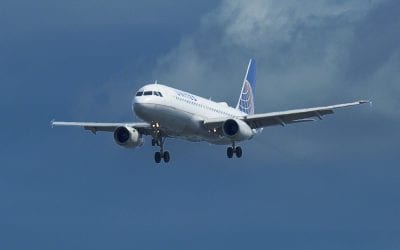One of the most important principles that protects consumers of travel services is that travel is a right. Your right to travel (both in general and specifically by air) is recognized by U.S. law and by international human rights treaties.
That’s why an airline isn’t like an ordinary business, which can say, “We reserve the right to refuse service to anyone.” For an airline or other common carrier to refuse service to anyone willing to pay the fare and comply with the terms in its published tariff would be a violation of the conditions of its operating license.
That’s a good thing, since otherwise you’d need a yacht or a private plane to get to or from Hawaii, Puerto Rico, Guam, the U.S. Virgin Islands, American Samoa, the Northern Marianas, the Aleutians, or any of the other discontiguous U.S. territories, if airlines decided to refuse you service.
That’s also why restrictions on the right to travel are subject to “strict scrutiny,” and must be “necessary.” As the U.N. Human Rights Committee has discussed, that means restrictions on travel must be likely to be effective for a permissible purpose, must be the least restrictive measure which could accomplish that purpose and must be proportionate to that purpose.
It is not sufficient for the government merely to claim that restrictions are intended to serve a permissible purpose (such as “national security” or “prevention of terrorism”), without a demonstration of actual effectiveness, proportionality and the absence of any less restrictive but at least equally effective alternatives.
In the U.S., the right to travel is only implicit, not explicit, in the Constitution. So we are accustomed to thinking about the right to travel as a prerequisite to the exercise of other fundamental rights — the right to assemble, the right to associate with others, the right to petition the government for redress of grievances, and so forth — rather than as a fundamental right in itself.
However, Article 12 of the International Covenant on Civil and Political Rights (ICCPR) makes clear that in international law, the right to travel is not dependent on who the traveler is, where they are going, the purpose of the journey or anything else. Travelers do not need to show some other, consequential harm to establish a violation of their rights. Restrictions on travel are per se human rights violations, regardless of their consequences or whether they also result (as, of course, they often do) in violations of other human rights.
These principles have, equally obviously, been ignored by the U.S. government. Travel has, increasingly, been treated as a specially restricted, inherently suspicious activity. Restrictions on travel have been subjected to reduced regulatory and judicial scrutiny, if any, rather than to heightened or strict scrutiny.
Fortunately, international human rights law doesn’t rely entirely on the ability of national governments to police themselves. Every five years, each party to the ICCPR must report to the U.N. Human Rights Committee on its implementation of the ICCPR and appear before the UNHRC to be reviewed.
The U.S. is in the midst of this periodic review process: On December 30, 2011, the US made its fourth periodic report to the UNHRC on its implementation of the ICCPR. During 2012, human rights activists in the U.S. and around the world have been reviewing the U.S. report, and preparing “shadow” reports on the inaccuracies and omissions from the U.S. report, to aid the UNHRC in its review.
On December 28, 2012, as part of a joint submission to the UNHRC by the U.S. Human Rights Network, the Consumer Travel Alliance submitted recommendations, in conjunction with the Identity Project, for issues related to freedom of movement that we think the UNHRC should take up with the U.S. Our submissions include questions and recommendations concerning U.S. detentions, interrogations, and searches of travelers and U.S. government surveillance and monitoring of travelers.
In March 2013 the UNHRC will decide on a list of priority issues related to U.S. compliance with the ICCPR. In October 2013 the UNHRC will hold a public meeting to question representatives from the U.S. government about these issues.
The UNHRC has no enforcement power. But it’s the only independent entity before which the U.S. is required to appear and which is entitled to cross-examine the U.S. government, publicly, concerning its human rights record. As such, the UNHRC has a powerful pulpit for “naming and shaming” of human rights violators.
We’ll be following the process through the coming year, and we’ll keep you posted.
Photo: United Nations Geneva
The winner of a 2003 Lowell Thomas Travel Journalism award for investigative reporting from the Society of American Travel Writers Foundation for his in-depth reporting on the privacy of travel records, Hasbrouck protects the freedom to travel, the privacy of travelers, and their right to control how personal travel records are used by travel companies and government agencies.




